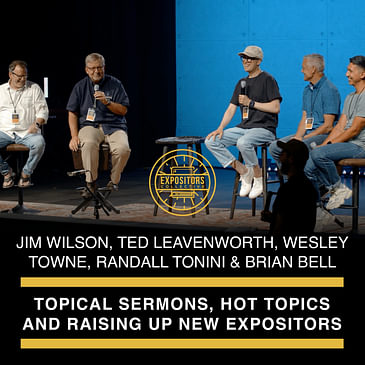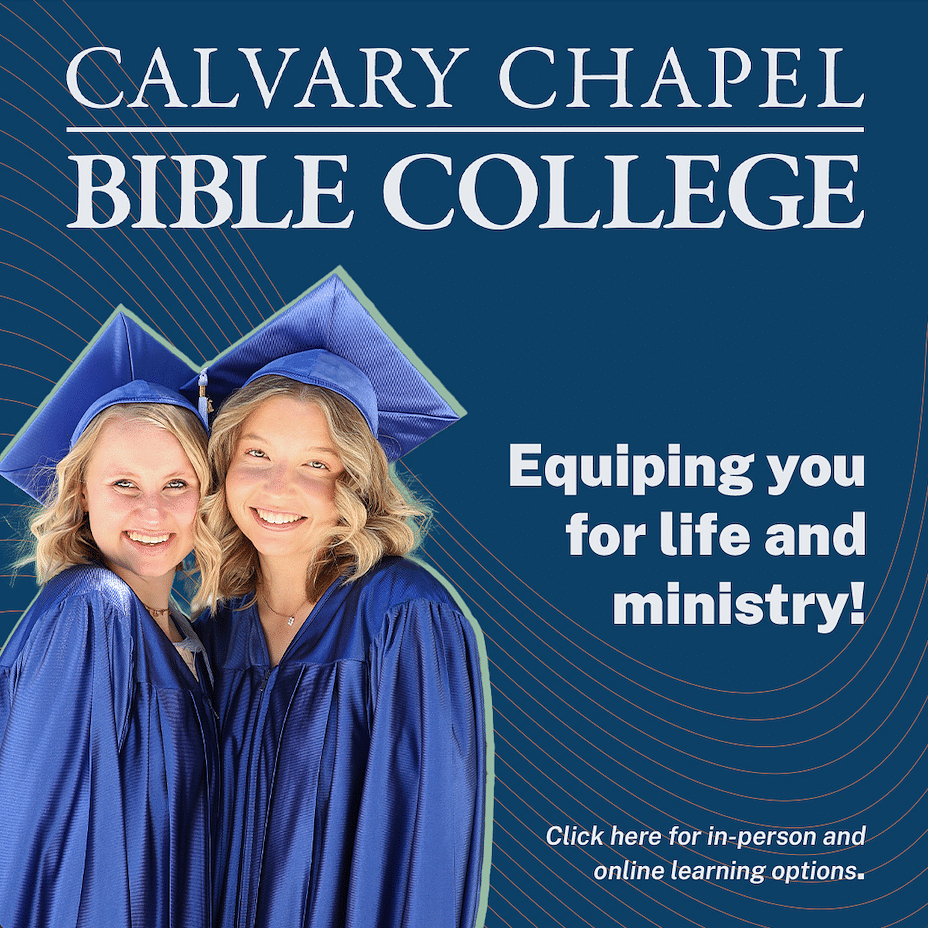Jim Wilson, Ted Leavenworth, Wesley Towne, Randall Tonini and Brian Bell offer wise insight, heartfelt advice and light-hearted humor in this panel discussion, recorded in Temecula, California at one of our Training Weekends. They answer questions concerning when it is appropriate to pause an expository teaching series, topical sermons, how many cross references are appropriate in a sermon, "gospel-smoothies", preaching on culturally sensitive and hot-button issues, and how to raise up the next generation of expository preachers.
If you would like to join us for our next training event it will be in Pleasanton, California at Valley Christian Church in Pleasanton California on May 24-25th
Register here: https://expositorscollective.regfox.com/expositors-collective-pleasanton
Resources Mentioned:
You can find Jim Wilson's dozen + books here: https://www.freshministry.org/
You can connect with Wesley Towne's mental health ministry here: https://www.betterdaysfmly.co/
Better Days Podcast: https://cgnmedia.org/podcast/better-days
Jesus is the Question book that Brian referenced: https://www.abingdonpress.com/product/9781426755149/
Recommended Episodes:
Jim Wilson : https://open.spotify.com/episode/6fwGgfA2dHh3IbZeavlwwp?si=J5BJobt6RcC0SW0Erqq0hw
Ted Leavenworth: https://open.spotify.com/episode/1zRv9lCZB5NIJgTOAtk8H7?si=10ee7a241e104136
Wesley Towne: https://open.spotify.com/episode/5fmamC7bQhRCQEwrk8YEct?si=F14ghQ5fSSeSvjM5z6_8RQ
Pleasanton, California Expositors Collective Training Event May 24th & 25th
We’re excited to be partnering with Valley Community Church to host our first training seminar in the Bay Area. We have a lot of friends (and podcast downloads) in that part of California and we know that it is going to be a great time!
To register or for more information visit https://expositorscollective.org/gatherings/
The Expositors Collective podcast is part of the CGNMedia, Working together to proclaim the Gospel, make disciples, and plant churches. For more content like this, visit https://cgnmedia.org/
Join our private Facebook group to continue the conversation: https://www.facebook.com/groups/ExpositorsCollective
Click here to support Expositors Collective






